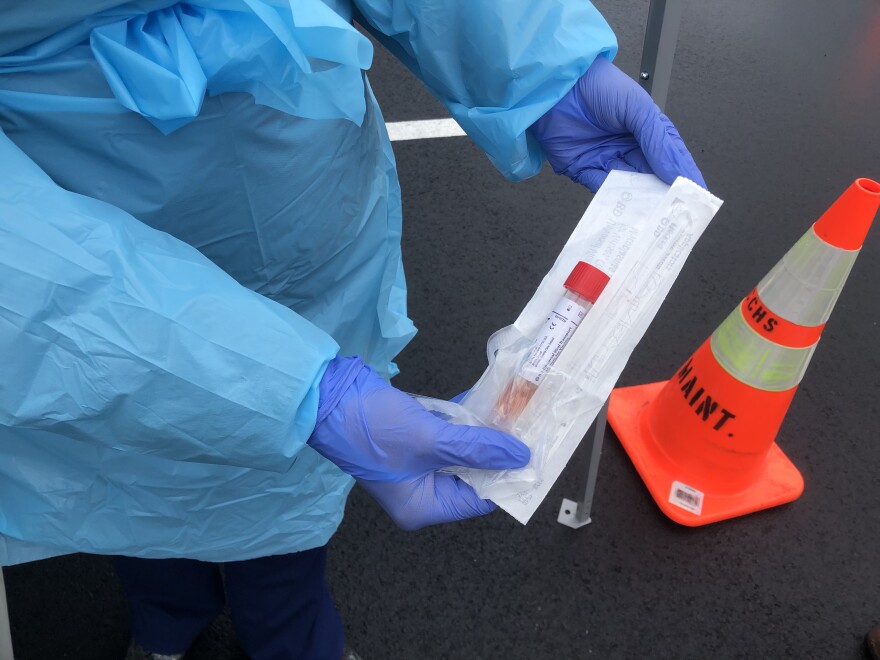Delaware’s hospitals and their partners are preparing for a surge of patients as the number of cases of the new coronavirus disease in the state grows.
For weeks, Delaware hospitals have been planning for the spread of the virus while restricting visitors and screening everyone who walks through the door for signs of COVID-19. But in recent days – as the virus spreads in Delaware and across the country - efforts have ramped up to prepare the state for a surge of patients that may test Delaware's capacity.
“All the hospitals are not only working on their own planning internally for surge capacity and space capacity additions, but also working with the [Delaware Emergency Management Agency (DEMA)] on a statewide basis to help identify not only the needs, but potential locations for additional beds and also look to maximize ICU setups as well as ventilator unit capacity,” said Delaware Healthcare Association President and CEO Wayne Smith.
Several health systems are using non-traditional parts of their hospitals to add more ICU beds. They’re also setting up tents and trailers outside to create more space for patients, and sites like the old Milford General Hospital are being considered in the event even more space is needed.
The hospitals are also in various stages of setting up testing sites up and down the state. Bayhealth has set up a call line for testing. Medical Director John Fink says Bayhealth is triaging patients that call in to determine which ones get a prescription for a test. The health system then holds drive up testing events twice a week in Dover.
“Right now we’re holding them across town. Dover Downs has been kind enough to let us use some of their space behind the race track and so we’re testing there,” said Fink. “We’ve done a total of three different dates so far. We’ve tested over 400 people and the call center has taken over 1,000 calls over the seven days we’ve been in existence.”
Fink says Bayhealth and other Delaware health systems are also looking to add medical students and retired physicians to their hospital staff as allowed by the state’s Public Health Emergency Order.
And, in recent days, health systems suspended surgeries and other procedures deemed non-essential or moved them off-site. These could even include some minor cancer surgeries.
In an email, a spokesperson for Beebe Healthcare said, “whether or not a cancer surgery would be canceled depends on each individual’s diagnosis and treatment plan, which would be discussed by the care team, surgeon, and patient, with their best interest of health in mind.”
Nanticoke Memorial Hospital President Penny Short says her hospital suspended non-essential procedures as of Monday
“Pulmonary function studies, physical therapy. We’ve moved labs off campus because there certainly still is need for that, but, yes, we’re looking at all non-essential testing to be canceled or done outside the hospital if possible,” said Short.
Nanticoke is a small hospital in rural Sussex County. Financial challenges led to its merger with Peninsula Regional Health System at the start of the year. Short says she expects the impact of the coronavirus pandemic to add financial strain to the hospital.
“I can tell you, it will be significant, but right now, our focus is on preparing the staff and making sure we have the capacity to care for the community and make sure we can keep them and our staff safe,” she said.
Delaware saw its largest single day jumps in COVID-19 cases this week with 31 cases announced Monday and then 17 more on Tuesday.
With reports of overwhelmed hospitals in other parts of the world and in other states, John Fink says Delaware hospitals are having conversations around triage policies to prepare for the expected surge of patients in the coming weeks.
“It’s not what any of us went into this for. We went into healthcare to take care of people and not have to decide how not to take care of people. That’s never a decision we want to have to make,” said Fink. “We recognize if it gets to that point we will have to have some kind of decision, but we’re still hoping the public will come through for us and we’ll not have to make that call.”
All state hospitals are currently coordinating efforts with the DEMA. Gov. John Carney’s State of Emergency order allows that agency to deploy the National Guard, if needed, to assist with those efforts.
DEMA Director AJ Schall says about seven guard members are already deployed in Delaware and more could be needed in the coming weeks.
“A handful of members that are assisting us at the Emergency Operations Center. There are some that are working on this surge plan as well,” said Schall. “We will definitely use them when need be for a number of functions, whether it’s transporting individuals, whether its setting up a facility to be an alternate care facility.”
Despite all preparations being made by hospitals and their partners, health officials say the best line of defense against overwhelming Delaware’s healthcare system is for people to practice social distancing.






